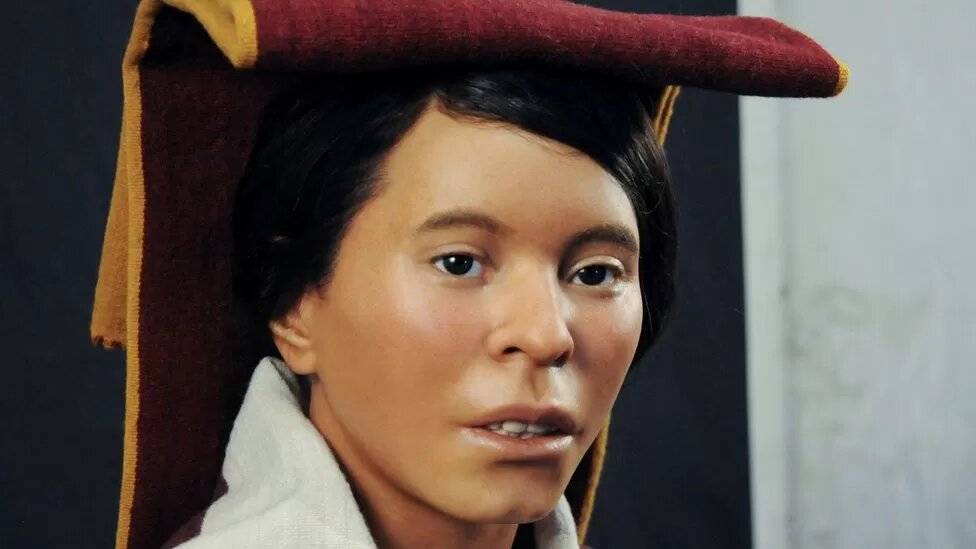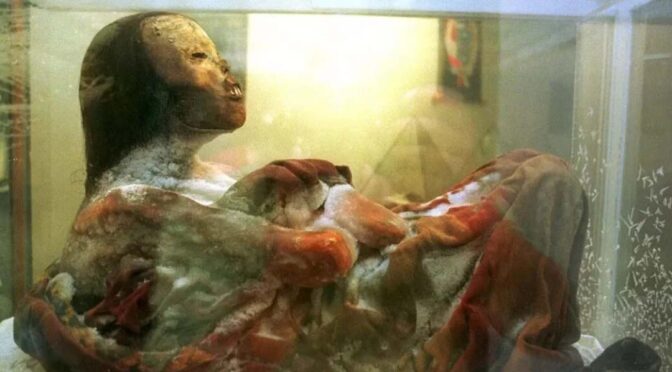Archaeologists Reveal the Face of Peru’s ‘Ice Maiden’ Mummy
In a remarkable unveiling, the potential true appearance of “Juanita,” Peru’s iconic mummy, a teenage Inca girl sacrificed over half a millennium ago on the lofty Andean peaks, has been revealed.
A life like sculpture revealing the potential living face of Peru’s most famous mummy, a teenage Inca girl sacrificed in a ritual over 500 years ago on the Andean peaks, has been unveiled.

The reconstructed mummy, known as “Juanita” or “The Ice Maiden”, is the result of collaborative efforts between a team of Polish and Peruvian scientists, in conjunction with Oscar Nilsson, a Swedish sculptor renowned for his expertise in facial reconstructions.
Johan Reinhard, the US anthropologist who found the mummy said he could not have imagined having a precise reconstruction of the mummy.
It took over 400 hours for Nilsson to reconstruct “Juanita,” from the research given by the Polish team.
Who was “The Ice Maiden”?
Reinhard and his Peruvian climbing partner, Miguel Zárate, discovered the mummy in 1995 at an altitude of more than 6,000 meters (19,685 feet) on the snow-capped Ampato volcano.
Juanita, the mummy, was almost entirely preserved in a frozen state, retaining her internal organs, hair, blood, skin, and even the contents of her stomach.

In addition to the mummy, they stumbled upon a multitude of items that had been left as offerings to the Inca gods.
These included llama bones, small figurines, and fragments of pottery, scattered across the mountain slope from which the body had tumbled down.
Anthropological research places the sacrificial date of Juanita between A.D. 1440 and 1450 when she was aged between 13 and 15.
The likely cause of her death was identified as a severe blow to the right occipital lobe, as determined by researchers at Johns Hopkins University who conducted a CT scan.
She is considered one of the best-preserved mummies in the Andes and her remains can currently be viewed at the Museum of Andean Sanctuaries in Arequipa, Peru
